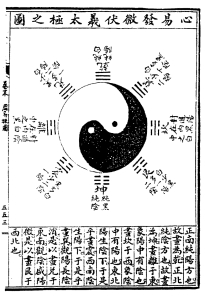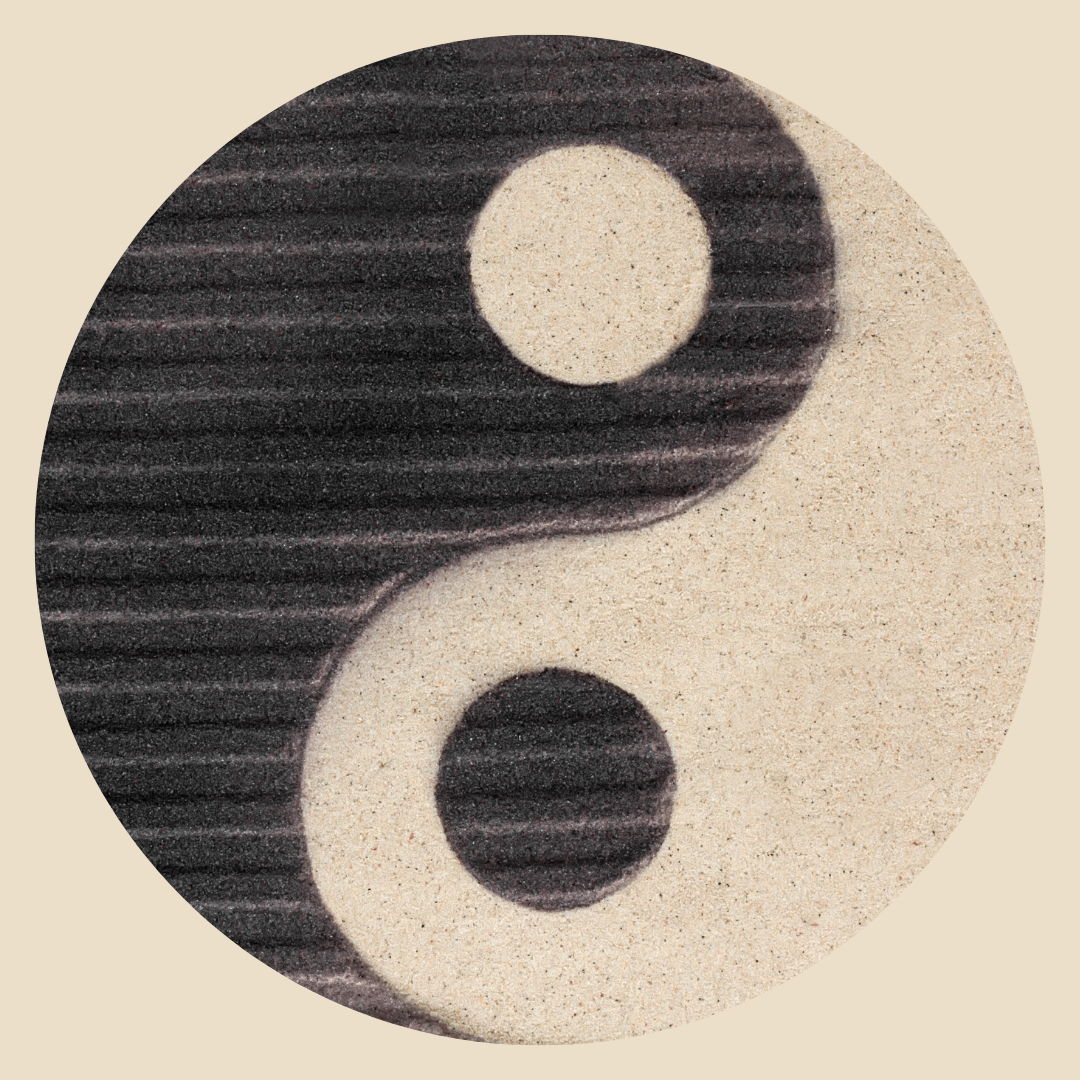What is Yin and Yang?
To understand the very basics of Traditional Chinese Medicine is to return to one of the most important naturalist thoughts produced by ancient Daoist thinkers - the Yin and Yang Theory.
Yin and Yang is used to explain relationships, patterns, and change in everything within and around us. The earliest Chinese characters for Yin and Yang were found on skeletal remains of animals dating from as early as 14th century B.C. It wasn't until the 3rd century B.C. that the Yin and Yang meaning became more well known through the philosophical study of cosmologist Zou Yan, who believed that all of life moved through the Five Phases (Wu Xing) - fire, earth, metal, wood, earth - elements that are continuously interchange according to the principles of Yin and Yang.
One of the fundamental principles of the Yin and Yang theory is a reminder that all things exist as inseparable and contradictory opposites.
The two parts of Yin and Yang are seen as equal and opposite elements that complement each other and, as the yin yang symbol shows us, each side has an element of the other (represented by the small dots). Neither part is superior to the other and if there is an increase in one, there will be a decrease in the other. To achieve harmony is to maintain a correct balance between the two parts - to balance both yin and yang.
What is the Yin Yang symbol?

If you look closely at the Yin and Yang symbol, you will notice
- two equal parts black and white
- a black spot in the white, a white spot in the black
- separation by a curved line (not a straight line!)
- they exist together in a full circle (not a square!)
How does the Yin yang symbol translate yin and yang meaning?
The Yin and Yang are equal and opposite parts that complement each other and each contains a part of the other. Neither Yin nor Yang is more superior than the other and if there is an increase in one, there will be a decrease in the other (they have to fit in the circle!) They will always coexist and be in dynamic (curve) relationship with one another.
What is Yin, what is Yang?
- Yang is the Sun - fast, expansive, hot, dry, light, expanding, outward, active, day, heaven
- Yin is the Moon - slow, introspective, cold, wet, dark, contracting, inward, passive, night, earth
*Fun fact: Dr. Sun's childhood nickname is Yang Yang - but don't ever tell him I told you so! :-)
Are you more Yin or more Yang?
Here is how to assess your body your body as either more Yin or more Yang.
-
More Yin: If you are more Yin, your signs of depletion are expressed in being overly sensitive to outer conditions, showing weakness and easily tired. You may lack motivation and perseverance, which require to find more rest and quiet. You may prefer small frequent meals. You often feel Cold, not very thirsty, enjoys spicy and hot food, slow and passive in behavior. you can have oily/acne prone skin, clammy hair, sticky perspiration
-
More Yang: you sometimes feel uneasy fullness or pressure in the head chest, or abdomen, more than often are constipated, can never feel very satiated / satisfied with food. You often feel Hot: overly thirsty, provocative and impulsive in behavior. Your body exhibits Dryness: dry skin hair and mouth, enjoys tart juicy and oily foods
So how can we find balance with Yin-Yang?
-
Food therapy: all foods can be classified into Yin vs Yang, hot vs cold. More on this topic later but it's an important one! If you know your body has more Yang, you should eat more Yin foods, and vice versa. Of course the approach is not so black and white but this is a general rule of thumb - we want equal parts Yin and Yang, always.
-
Seasonal attunement: as we mentioned earlier, the 5 phases are an important practice to Traditional Chinese Medicine and living with seasonal attunement is an important topic when we think about our lifestyle. In summer, the season is considered a Yang season, and as such, the body becomes more Yang. If we're naturally we are burning more Yang energy. we need to slowly restore this - so to replenish our Yin. To learn more about seasonal adjustments and food, head to our class pages for opportunities to learn this information LIVE!
- Chinese medicine balance: the power of understanding your yin-yang balance comes in your ability to recognize signs of imbalance and quickly heal yourself. If you know your body is is more Yang (heated) because you are constipated, a quick way to relieve this heat is to drink a Yin-cooling tea. Chinese herbs are a great way to naturally restore the Yin and Yang to the body. Interested in understanding your personal Yin-Yang balance? Book a seasonal check-up here.


1 comment
I read your blog, it was really good. This blog information was helpful. I have learned a lot from this blog. Please keep posting blogs like this, so people can find what they want.